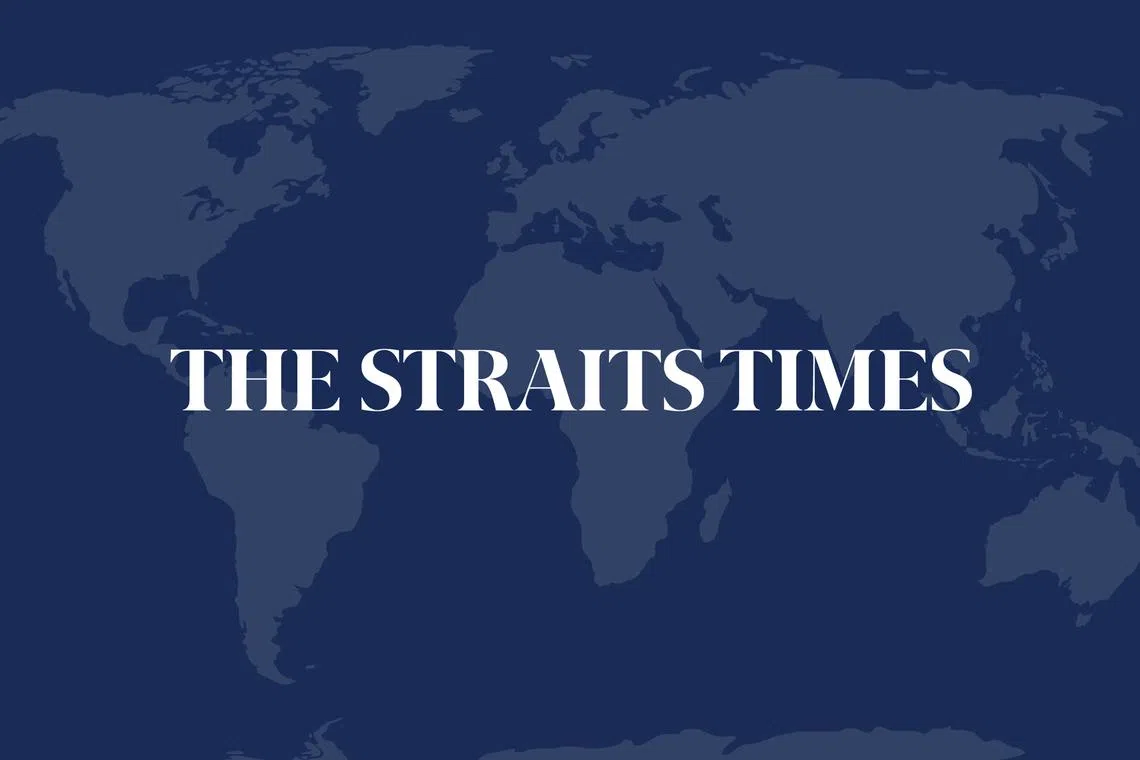BEIJING - China has issued a 44-page paper to position itself as an important contributor to the protection of undersea cables, a critical infrastructure that has been the subject of great power contestation in recent years.
This comes as recent high-profile cable-cutting incidents – including those involving Taiwan and linked to Chinese-crewed ships in 2025 – have fuelled suspicions about Beijing’s “grey-zone” tactics.
The paper was published on March 25 by the China Academy of Information and Communications Technology, a research institution under the Ministry of Industry and Information Technology.
“China is an active builder, reliable operator and security maintainer of international submarine cables,” declared the report, which is available in English.
Chinese enterprises have long been involved in the protection and maintenance of international submarine cables, said the report, adding that the Chinese government has laws to punish those who damage them.
Undersea – or submarine – cables that transmit data between countries and continents have been yet another area of US-China tech contestation. Both countries want to prevent such a critical infrastructure from falling under the control of a potential adversary.
These fibre optic cables carry over 99 per cent of global internet traffic and are crucial for communications and transactions from digital payments to defence coordination and the development of artificial intelligence.
Assistant Professor Dylan Loh of NTU, who studies Chinese foreign policy, saw the report as China trying to make its case to the international, scientific and business community that it is a responsible player in this field.
“But to be honest, the actors that really matter, (including) the US and Taiwan, have made up their minds and this report will do little to move the needle,” he told The Straits Times.
Cases of alleged sabotage have raised the question of whether more can be done to secure such cables, which are typically laid on the seabed or buried about a metre deep, which makes them easy to physically damage.
In January, a Chinese-crewed cargo ship, owned by a Hong Kong company, was suspected by Taiwan to have damaged an undersea cable off the island’s north-eastern coast by dragging its anchor along the seabed. In February, Taiwan detained another Chinese-crewed cargo ship after another cable was severed off the western side of the island that connects it to the outlying Penghu islands about 50km away.
In these cases, there was no direct evidence of Beijing’s involvement, although experts point out that such “grey-zone” operations that fall short of military conflict are meant to be difficult to attribute, and Taiwan has faced more of such pressure from the mainland in recent years.
A news report on March 25 by the official Xinhua news agency responded directly to such accusations of China’s malign intentions. It said China has helped improve global access to fast and affordable internet, but “some Western countries have been viciously smearing China” and accusing the country of surveillance with no concrete proof.
“Such allegations are no more than repeated chapters in a playbook intended to suppress China’s submarine cable industry and contain the country’s development,” said the Xinhua report. A Global Times report, also on March 25, added that the 44-page report addressed groundless claims of sabotage by China.
In response to earlier incidents of submarine cable disruptions, including in the Baltic Sea and Red Sea, the US in September 2024 proposed the New York Principles, a statement focusing on managing security risks associated with undersea cables.
More than a dozen countries, including Singapore, South Korea, Japan, Australia and Britain, have endorsed the principles.
They recommend the selection of “secure and verifiable subsea cable providers” and encourage suppliers to have “transparent ownership, partnerships and corporate governance structures”. Beijing has opposed the principles, accusing the US of politicising the issue and discriminating against Chinese companies.
Leading Chinese suppliers include the fast-growing, Tianjin-based HMN Tech, whose establishment in 2008 began to break the dominance in the construction and laying of undersea cables held by the US’ SubCom, France’s Alcatel Submarine Networks and Japan’s NEC.
In 2023, a Reuters report said the US government had reportedly intervened to prevent a US$600 million (S$800 million) contract for the SEA-ME-WE 6 cable system from going to HMN Tech, which would have been its biggest project to date.
It instead went to SubCom, which works almost exclusively for the US government and American tech firms such as Google. The 19,200km-long cable system connects Singapore to France via Egypt and is expected to be completed in 2025.
Recent research from China on more efficient cable-cutting methods and devices, reported on by local and foreign media outlets, has also raised questions about Beijing’s intentions to use such ostensibly civilian equipment to achieve political or military aims.
Dr Collin Koh, a senior fellow at the S. Rajaratnam School of International Studies, said that even as the timing of such research from China might be coincidental, the geopolitical context should not be ignored.
Given the recent incidents and how such tech advancements seem to outpace the speed at which regional governments think up measures to secure these underwater infrastructures, they would “naturally and understandably come across as alarming”, he said.
Professor Wang Yiwei, from the School of International Studies at Renmin University in Beijing, said the 44-page report was intended to make clear China’s stance and rebut accusations of Chinese involvement in recent cable-cutting incidents.
On recent research on deep sea cutting devices, he added: “To cut cables at 4,000m underwater is obviously very difficult, and (hence) to extend the ‘China threat’ theory to the deep sea reflects exaggerated Western concern.”
- Lim Min Zhang is China correspondent at The Straits Times. He has an interest in Chinese politics, technology, defence and foreign policies.
Join ST's Telegram channel and get the latest breaking news delivered to you.

 By The Straits Times | Created at 2025-04-03 14:30:58 | Updated at 2025-04-04 18:43:29
1 day ago
By The Straits Times | Created at 2025-04-03 14:30:58 | Updated at 2025-04-04 18:43:29
1 day ago








